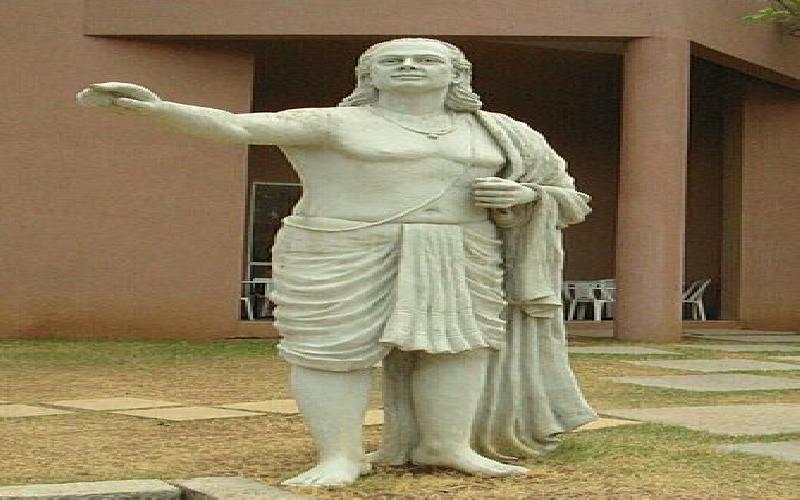Social Organisation and Classes in Ancient India


Ancient Indian society had succeeded in orienting the lifestyle, expectations and duties of its people in accordance with their vocation or profession. This helped in achieving greater vocational specialization and gave rise to four classes of Brahmins, Kshatriyas, Vaishyas and Shudras. Unfortunately, with social decay, this class system later degenerated into caste system..
The Caste system in India is considered a scourge for the society. Its impact on Indian polity and social dynamics remains second to none, even though with urbanization, modernization and democracy it is rapidly losing its relevance in modern India, and thankfully so. May be it is time we also have a look at how this menace evolved to understand how gradual distortions corrupt our social institutions….
The ancient Indian society had innovated a unique class system based on vocation and profession, and attached a great amount of importance with reference to one's duties and values, giving them an importance equivalent to religion. The Indian religious philosophy of ‘Dharma’ prescribed code of conduct in accordance with one’s circumstances of life and place in family and society.
Thus, the dharma of a son was considered different than the dharma of the father; similarly dharma of a teacher was different from the dharma of the soldier or a merchant or a farmer. The expectation of a particular code of conduct for different vocations played an important role in facilitating them to fulfill their role in the society. However, it also created identities and sub-identities within the society, especially once a link was established between one’s birth and vocation.
This is what gave rise to the ‘caste system’ in due course of time.
The Varna System
This system, also known as the 'Varna' system of social division, divided the society on the basis of one's vocation and profession. Each of the four groups was prescribed duties and values comparable with modern professional. These duties were considered one's 'Dharma' - the term used equivalently for religion in India, literally meaning duties. In modern times, one can see an analogous concept of ‘ethics’ that is related and dependent on one’s profession or vocation.
The first of these four classes was called 'Brahmins', consisting of scholars, saints and teachers, and was considered the most revered class in the Indian society. Supposed to be the conscience of the society, and the reservoirs and preservers of social knowledge, skills, wisdom and values, Brahmins led a very austere life, avoided vices like violence, greed, addiction, and glamor. They did not enjoy political power or wealth, yet, were granted the highest respect in society. Even the King was supposed to respect them, and killing a Brahmin was considered a sin.
The next class was known as 'Kshatriyas', consisting of warriors, King, the nobles and the soldiers. They were supposed to be men of honor, follow a warrior's code of conduct, be respectful to the Brahmins and fight for the protection of weak. They enjoyed political power and were expected to use force and resort to violence whenever so required by their profession. Thus the duties of this class were different.
The third class was that of 'Vaishyas', the businessmen and traders, who were expected to generate wealth and be rich. Their goal of life was to accumulate wealth and become rich. In a way they were like modern capitalists, but they were also supposed to respect Brahmins as well as pay their taxes to the King. In a way they were considered custodians of the society's wealth.
The last class was called 'Shudras', which included ordinary peasants, the lower level employees, servants and workers. They were expected to perform the duty assigned with loyalty and honesty. As ordinary laymen, the expectations were also lower from them, and they had more freedom in selecting their life-style.
Vocational Specialization distorted into Divided Society
This class system adopted by the Indians in ancient times is a reflection to the level of sophistication of their society and can be considered an achievement in orienting one’s lifestyle and code of conduct in accordance with the requirements and expectations of their profession. In a way it reflected greater specialization of individuals towards their work.
One's vocation was considered very important, and everyone was supposed to fulfill his or her duties honestly and sincerely. In fact, the word 'Dharma' equivalent to religions of the Western world, literally meant 'duty'. The concept was that one's duty depended on one's station in life, and would be different from time to time and person to person. So, the duties of a daughter were different than those of a mother. Similarly, the duties of a student were different than those of a teacher. Duties also varied with vocation. Thus, while other classes were expected to refrain from indulging in violence, the soldier class, i.e. kshatriyas were expected to be masters of warfare and be always ready to use violence for the benefit of society.
This ancient class system later got distorted in to 'caste' system, when it came to be inherited by birth and hence connected with descent. Today it has all but faded, but its bitter memories still remain and remind us that groupism of any sort within the society is a dangerous phenomenon, and should never be allowed to take strong roots.
There are similar practices that are more or less common to different streams of human civilizations that took root at different points of time in different continents. Mediation practices and several devotional rituals followed by Eastern Orthodoxy are also similar to Buddhist practices.
You may have lots of reasons to say Sweden is indeed a great place to live, study, visit or work..
Marthanda Varma was the founder of modern Travencore. Read about his followers till the formation of independent Kerala..